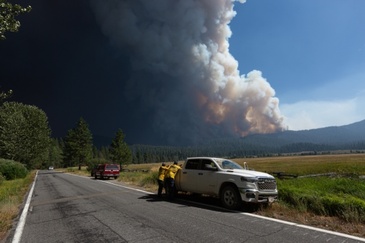In the study, the authors used historical data to understand how changes in temperature and precipitation affect economic growth, and to project these impacts into the future with a focus on effects by midcentury.
The analysis extended prior work in three innovative ways:
- by using subnational rather than national data, to capture the detailed impacts of weather patterns at the local level;
- by exploring the effects of daily weather variability and extremes in addition to average conditions; and,
- by assessing the duration of climate impacts on economic growth rates, rather than assuming that they last indefinitely or are only instantaneous.
Prior to publication in April 2024, the paper and data underwent peer review, to ensure that data analysis and methodology were sound.
The decision follows an exchange between Nature and the author team, prompted by two critiques - called ‘Matters Arising’ – published in August 2025. In response to the critiques, the authors undertook revisions to constructively address the issues raised. Nature determined the changes exceeded those of a correction, so the authors will resubmit a new version of the paper for peer review.
The first critique of the study published as a “Matters Arising” (Bearpark et al, 2025) highlighted errors in the underlying economic data from Uzbekistan, which contained anomalous data entries and had a disproportionate influence on the results. Anomalies in the underlying data in Uzbekistan for the years 1995-1999 were found to stem from an incorrect conversion of the source data (from UNDP Human Development Reports) into local currencies by the research team, using the market exchange instead of purchasing power parity (PPP) rates and then into constant 2015 USD. This resulted in a large discrepancy with 2000-2019 data, which came from the National Statistical Agency of Uzbekistan, and therefore a large jump in data between 1999 and 2000.
In addition, both Matters Arising (Schötz 2025 and Bearpark et al, 2025) flagged that the original model did not appropriately account for correlations in data between subnational regions (spatial autocorrelation). This meant that the original assessments of uncertainty were too small.
In response to the critiques in the Matters Arising, the authors revised their analysis, and detailed these changes in an open access manuscript, along with the data and code. In brief, the updates were:
- The underlying data for Uzbekistan in 1995-1999 was corrected.
- Observations of economic growth which involved GDP data from two different data sources in consecutive years were removed, in order to better exclude potentially anomalous GDP growth rates stemming from data source transitions.
- An additional quadratic term was added to the data to better control for non-linear trends, unrelated to climate, in the underlying economic data.
- ‘Conley standard errors’ were introduced to account for spatial autocorrelation within distances of 500km, as further investigation showed there was very low spatial correlation beyond these distances.
Each revision implemented by the author team was in response to issues raised by the authors of the Matters Arising.
In their correction note, the authors also presented the results of sensitivity tests excluding Uzbekistan, which showed reduced sensitivity, with estimates now falling within the main uncertainty range when Uzbekistan is removed.
The correction of the data and update to the methodology enables a close comparison to the results of the original analysis, though the authors emphasise that the results of the revised analysis are not yet peer reviewed.
The revisions did not significantly alter the central estimates, but did increase the uncertainty range they sat within.
Correcting the underlying data for Uzbekistan and introducing additional controls to make the model more robust to outlier data and anomalies resulting from the transition between data sources changed the global median income loss from 19% (18.8%) to 17% (17.4%).
Accounting for spatial correlation using ‘Conley standard errors’ did not affect the median, but did increase the uncertainty ranges, with the likely range of damages by mid-century increasing from 11-29% to 6-31%.
Science is built on the principles of peer-to-peer exchange and open access data and methodologies. The critiques of this paper published as Matters Arising, and the publication of an open access revised analysis is an example of this process functioning healthily.
The wider consensus of the scientific community on the significant impacts of climate change on the economy is verified by a range of studies with different data and methodologies, including by the authors of the Matters Arising (1, 2, 3, 4, 5).
As with all retracted papers on the Nature website, the original article is marked as retracted, but remains available to readers. Information on how to correctly cite the retracted study and its data to correctly acknowledge its retracted status can be found on the Nature website.
The revised study, including its data, was made openly available in August to support scientific exchange on the topic. The authors would like to emphasise that it has not yet undergone peer review and should therefore be clearly labelled as such if referenced in any format.
This paper is a result of the authors’ line of scientific enquiry into emerging research questions in the field of climate economics and impact research. Research time for this work was majority-funded through institutional funding from PIK. The lead author’s PhD position and postdoc was supported by a mix of third-party sources of funding. All third-party funding is transparently disclosed on the publication page.
Update (03.12.2025): The authors have retracted the paper. As a result, questions 2, 7, and 8 were added to the Q&A.
Further information:
- Web link to the press release from 03 December 2025
- Web link to the revised analysis and the correction note
- Web link to the press release from 6 August 2025
- Web link to the original Nature study (2024)
Contact:
PIK press office
Phone: +49 331 288 2507
E-Mail: press@pik-potsdam.de
Web: https://www.pik-potsdam.de/en
Social Media: https://www.pik-potsdam.de/socials






